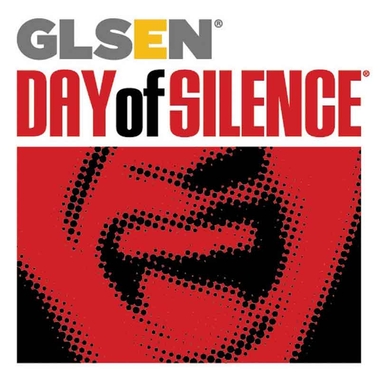When to break the silence

by Hayden Smith
Staff Writer
The National Day of Silence, officially sponsored by the Gay, Lesbian, and Straight Education Network (GLSEN), is held annually in April and meant to call attention to bullying in schools, specifically bullying and harassment on the basis of sexual orientation and gender identity, by illustrating its silencing effects.
What started out as a class assignment at the University of Virginia in 1996 has now become a nation-wide movement of LGBTQ advocacy and allyship.
Students from middle school to college take a vow of silence, either in between classes and at lunch or throughout the whole day, depending on what each school allows.
In some places, this silent protest is all that happens. In Wichita, Kan., the local chapter of GLSEN livens up the event and brings it out of the classroom with a little help from the community.
A. Price Woodard Park hosts the event from 4 p.m. to 6:30 p.m. Students socialize, hold a silent demonstration and break with a rally featuring a DJ and booths from local organizations partnered with their GLSEN chapter.
Still, the Day of Silence is more than a fun gathering or a few students being quiet in class. Liz Hamor, co-chair of GLSEN Greater Wichita, shares the impact she’s seen because of the event.
“It’s necessary to move forward. It starts a conversation that’s needed,” she says. “In places where they’ve been doing Day of Silence for a while, it’s important to continue the conversation.”
Hamor says she’s already seen a big shift in the event and the conversation around it just in Wichita. “Community wise, our first two years it grew by 60 percent. The media we get around helps to raise awareness of the struggles our students are facing. We have to have that conversation, even if it’s uncomfortable.”
On a national scale, the social climate appears to be improving. GLSEN’s 2015 National School Climate Survey reported that verbal harassment of LGBTQ students based on sexual orientation and gender expression is on a steady decline.
Even so, the discrimination is still disproportionate and students need support now more than ever.
Students with strong and visible support tend to have higher self-esteem, higher GPAs and higher graduation rates, whether that support comes in the form of GLSEN organizations, GSAs or trusted teachers.
For LGBTQ students being bullied, breaking their own silence is key. Reporting harassment to a trusted teacher or staff member is key to ending the cycle.
Besides encouraging direct action, Hamor says she wants students being bullied to know they are not alone. “There are hundreds of people out there working for them, believing in them, trying to make the world a better place for them.”
This year’s Day of Silence will be held nationally on Friday, April 21.
Copyright 2017 The Gayly – April 14, 2017 @ 10:55 a.m.





